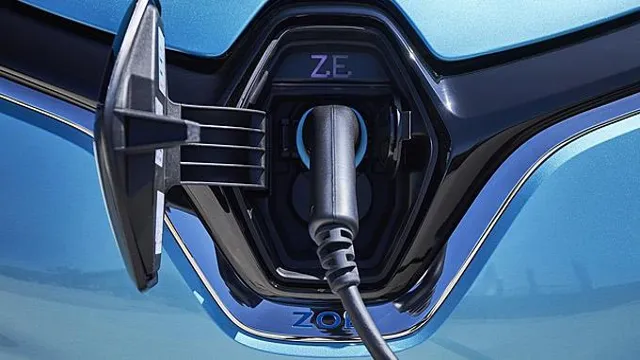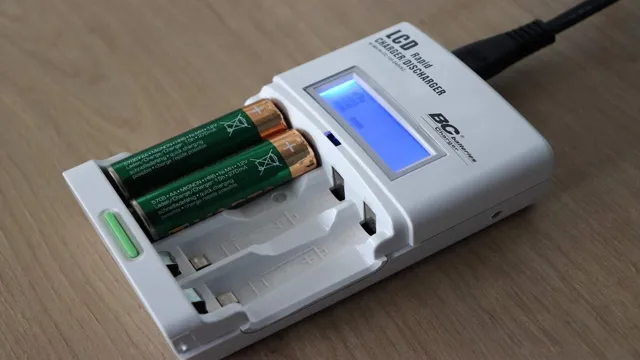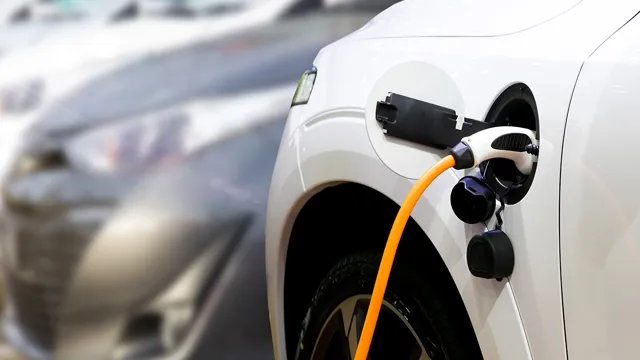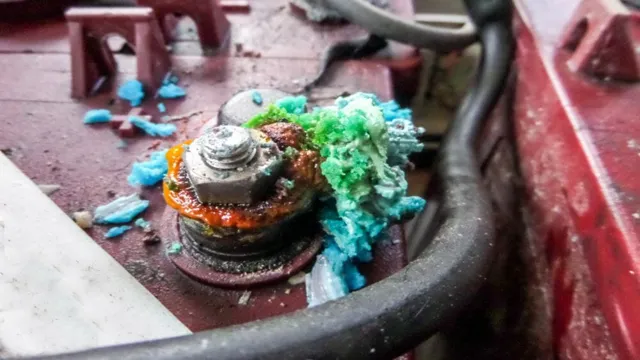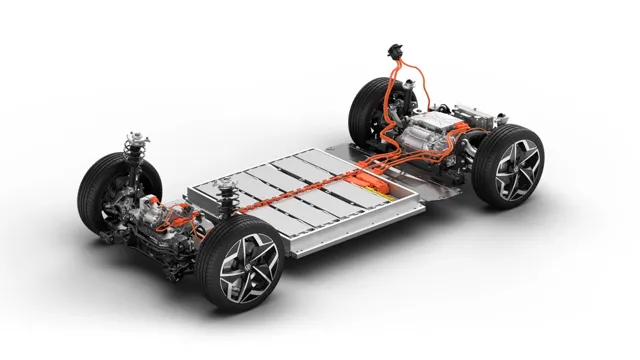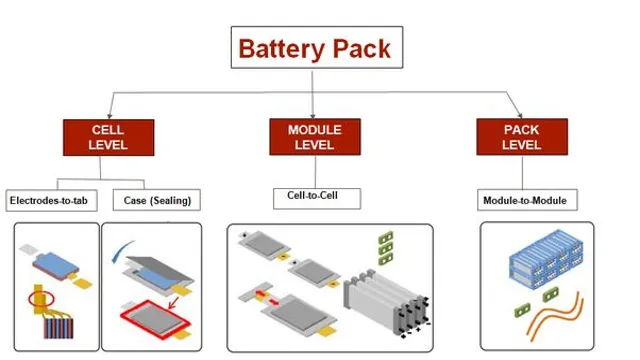Electric Car Battery Warranties: Decoding the Fine Print and Protecting Your Investment
Electric cars are becoming increasingly popular as people strive to reduce their carbon footprint and protect the environment. One of the most important considerations when buying an electric car is battery warranty – after all, the battery is the heart of the vehicle. In this blog, we will delve into battery warranty for electric cars, what it means for you and your wallet, and why it’s so important to understand the details of the warranty when choosing an electric car to buy.
So, if you’re in the market for an electric car, let’s take a closer look at battery warranties to help you make an informed decision.
The Importance of Battery Warranty
When it comes to electric cars, one of the most critical aspects to consider is the battery warranty. This ensures that you’re protected against any form of defect, malfunction, or poor performance of your car’s battery pack. In fact, a comprehensive battery warranty not only provides peace of mind but can also save you a considerable amount of money in the long run.
With the average lifespan of an electric car battery ranging between 8-10 years, having a reliable battery warranty can be a game-changer, providing you with a safety net should anything go wrong. When choosing an electric vehicle, it’s crucial to consider the battery warranty and any extra coverage that may be available. So, take the time to do your research, and ensure that your investment in an electric car is not only good for the environment but also protected against any unintended issues in the future.
The Cost of Replacing a Battery
When it comes to replacing a battery, the cost can be a concern for many people. This is where having a battery warranty is incredibly important. A warranty can give you peace of mind in case your battery fails or needs repair within a certain timeframe.
With a good warranty, you won’t have to worry about the cost of replacing the battery entirely out of your own pocket. Instead, the warranty can cover the cost of the replacement or repair, which can save you a significant amount of money in the long run. It’s important to always read and understand the terms and conditions of your battery warranty, so you know exactly what is covered and what isn’t.
Remember, a good battery warranty can provide you with the added protection and security that you need to ensure that your battery runs smoothly for years to come.
The Need for Long Battery Life
As technology has become increasingly mobile, it’s become more important than ever before to have a battery life on your device that lasts as long as possible. After all, what good is a smartphone or tablet if you’re constantly tethered to a wall outlet? That’s why battery warranties are becoming such a crucial consideration when purchasing a new device. Long gone are the days of being satisfied with a phone that lasts through the workday – we now expect our devices to keep running well into the evening.
A battery warranty gives us the peace of mind that we can rely on a device for years to come, without worrying about a dwindling battery life. It ensures that we’re not left stranded without means of communication just because our device’s battery has given out. Don’t let a short battery life be the reason to ditch your device earlier than intended – choose a device that comes with a reliable battery warranty.
Types of Battery Warranties
When it comes to purchasing an electric car, one of the most important aspects to consider is the battery warranty. There are different types of battery warranties available in the market, and each one offers a different level of protection for the vehicle owner. One type of battery warranty is a time-limited warranty, which covers the battery for a specific amount of time, typically between 5 and 8 years.
Another type of warranty is a mileage-based warranty, which covers the battery up to a certain number of miles driven, usually between 60,000 and 100,000 miles. Some manufacturers also offer a performance warranty, which guarantees that the battery will retain a certain level of its original capacity for a set period of time. It is important to carefully assess your driving needs, expected usage, and budget when choosing the best battery warranty for your electric car.
A comprehensive warranty can provide peace of mind and protect you from potential battery failure or degradation, which can be costly to repair.
Manufacturers’ Warranties
When purchasing a battery, it’s essential to understand the different types of warranties offered by manufacturers. One common type of battery warranty is a pro-rata warranty. This type of warranty is prorated, meaning the amount of coverage decreases over time.
For example, if a battery has a five-year pro-rata warranty and fails after four years, the manufacturer may cover a percentage of the replacement cost. Another type of battery warranty is a free replacement warranty, which offers full coverage for a predetermined length of time. These warranties can range from a few months to several years, depending on the manufacturer.
It’s crucial to read the fine print and understand the terms of the warranty before making a purchase. Remember that not all warranties cover damages caused by misuse or neglect. So, it’s essential to properly maintain your battery to ensure it lasts as long as possible.
By understanding the different types of battery warranties, you can make an informed decision and find a battery that fits your needs.
Extended Warranties
Extended warranties are a popular option for buyers looking for extra protection for their purchases, and batteries are no exception. When it comes to batteries, there are several types of warranties to consider. The most common is the prorated warranty, which provides a refund or replacement for the battery based on a percentage of its original cost.
For example, if a battery fails after one year and the prorated warranty is for five years, the buyer may be eligible for a refund of 20% of the original cost. Another type of battery warranty is the full replacement warranty, which provides a new battery for the buyer if the original one fails within the warranty period. It’s important to read and understand the terms of the warranty before making a purchase, as some warranties may not cover certain types of damage or may have other limitations.
By understanding the different types of battery warranties available, buyers can make an informed decision on the best protection plan for their battery purchase.
Third-Party Warranties
When it comes to battery warranties, there are a few different types to be aware of. The first is the manufacturer’s warranty, which is typically included with the purchase of a new battery. These warranties can vary in length, but they usually cover defects and malfunctions that occur under normal use.
Another type of warranty to consider is a third-party warranty. These warranties are usually offered by companies that specialize in extended warranties and can offer additional coverage and protection. While some third-party warranties can be valuable, it’s important to do your research to ensure you’re getting a reputable product.
No matter what type of warranty you’re considering, it’s important to carefully read the terms and conditions to understand exactly what is covered and what is not. That way, you can be confident in the protection your battery is receiving and can get the most value for your investment.
Things to Consider in a Battery Warranty
When purchasing an electric car, one of the most critical components to consider is its battery warranty. The battery is by far the most expensive part of the car, and its longevity is crucial to the overall performance of the vehicle. A good battery warranty for electric cars should cover the battery for at least eight years or 100,000 miles, whichever comes first.
It should also protect against battery capacity degradation, which occurs naturally as the battery ages. A comprehensive warranty should include free replacement or repair of the battery if it fails before the warranty expires. It is also essential to consider the warranty’s terms and conditions, as some warranties may cover the battery’s defects but not its degradation.
So, it’s worth doing your research and comparing warranties from different manufacturers when shopping for an electric car. Ultimately, a battery warranty that aligns with your driving habits and needs is crucial to help you avoid costly repairs and replacement.
Coverage and Limitations
When it comes to battery warranties, it’s important to understand the coverage and limitations so you can make an informed decision. One thing to consider is the length of the warranty. While some warranties may be as short as one year, others can last up to 10 years or more.
Another thing to keep in mind is what exactly is covered under the warranty. Does it cover manufacturing defects only, or does it also cover wear and tear? Additionally, it’s important to note any exclusions or limitations, such as damage caused by misuse or failure to properly maintain the battery. Checking the manufacturer’s reputation and customer service can also impact your decision, as a reputable company with good customer service can make all the difference if you need to file a warranty claim down the line.
By taking these factors into consideration, you can ensure that you are getting a battery warranty that meets your needs and gives you peace of mind.
Duration of the Warranty
When it comes to purchasing a new battery, the warranty is an important factor to consider. The duration of the warranty can vary depending on the manufacturer and the type of battery. It’s essential to ensure that your battery comes with a warranty that suits your needs and budget.
Some batteries may come with a short warranty of just a few months, while others can come with a more extended warranty of several years. It’s always a good idea to opt for a battery with a longer warranty period if possible. Not only does this provide you with peace of mind, but it also means that you’ll be covered in case of any unexpected issues.
When considering a battery warranty, it’s important to read the terms and conditions thoroughly to understand what is covered and what is not. Some batteries may only cover manufacturer defects, while others may cover a broader range of issues. Ultimately, choosing a battery with a good warranty is a smart investment that can save you money and headaches in the long run.
Conclusion
In conclusion, the battery warranty for electric cars is like a promise ring for your relationship with your vehicle – it signifies a commitment to providing long-lasting power and a mutually beneficial partnership. Just as a warranty gives you peace of mind, knowing that any unexpected issues will be addressed, so too does the promise of electric power bring a sense of security and sustainability to your driving experience. So go ahead and embrace the battery warranty – it’s a pledge that’s worth keeping.
“
FAQs
What is the standard battery warranty for electric cars?
The standard battery warranty for most electric cars is 8 years or 100,000 miles, whichever comes first.
Does the battery warranty cover all components of the electric car’s battery?
It depends on the manufacturer’s warranty. Some warranties cover all components, while others only cover specific parts or defects.
Can I purchase an extended warranty for my electric car’s battery?
Yes, most manufacturers offer extended warranties for their electric car batteries, which can provide additional coverage beyond the standard warranty.
Is the battery warranty transferable if I sell my electric car?
Again, this varies by manufacturer. Some battery warranties are transferable to new owners, while others are not. It’s best to check with the manufacturer for specific details.
